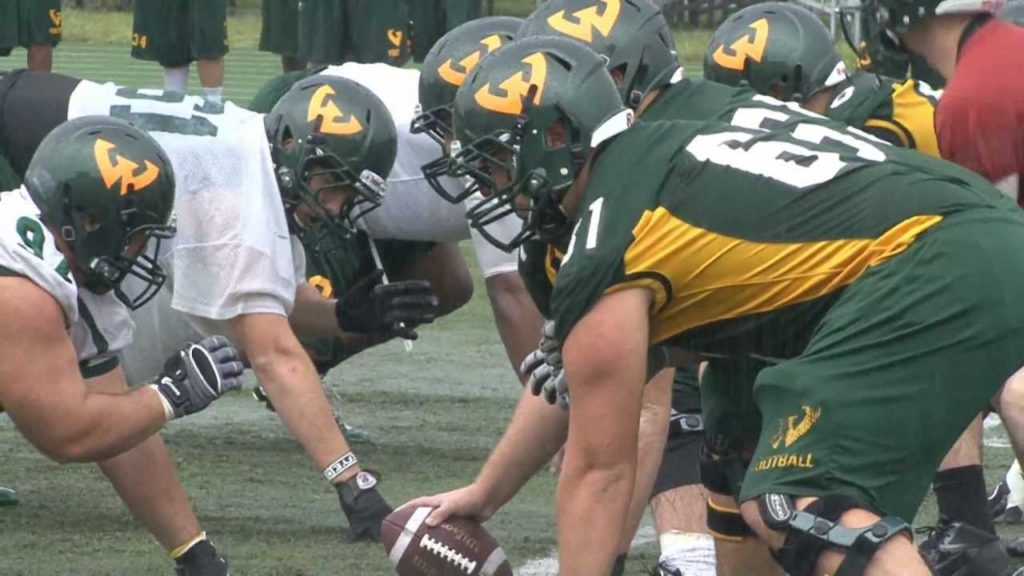Frank Lietke loved the maize and blue of Michigan, and thought he had done everything right in order to play for his favorite college team. After earning varsity letters in three sports, and claiming state and national championships in powerlifting,he invested in additional practice sessions, coaching, and weightlifting in order to gain a competitive edge over other college football recruits. In the classroom he worked hard to graduate with honors and tested well on the college prep-test. Frank thought he was on track to play for the University of Michigan, but when Frank met with Lloyd Carr, he was told he had the skills to play, the strength to play, and the passion to play…but not the size. Despite his outstanding performance and top ranking, he was simply 2 inches too short and 25 pounds too light to play for Michigan. He was invited to consider walk-on status, but received no guarantee for play time and no financial support.
Should I walk-on to a DI School or Play DII?

Frank faced this situation in his senior year at Walled Lake Central High School, and at the time it seemed devastating. However, after careful consideration and some intentional decision making, he considered the world-class business degree he would earn as the ability to play the game he loved at a very competitive level and walked away debt-free at the end of four years.
High School Athletes should consider the following before selecting their school:
1. Understand the odds. Approximately 5.8 percent, or less than one in 17 of all high school senior boys playing high school football go on to play football at a NCAA member institution. Eight in 10,000, or approximately 0.08 percent will eventually be drafted by an NFL team. Even if you are good – really good – understand the odds and work a contingency plan just as diligently.
2. Think Three Steps Ahead. Although it’s enticing to choose a school based on the football program alone, you must consider the end game of where you’ll be at the end of four years. Selecting a school with well-respected academics will attract top employers and differentiate you in a competitive marketplace.
3. Focus on Academics. Working in the weight room is important and seeing your effort play out on the field can be validating, however, your game can only take you so far. Frank elected to attend Wayne State University, which offered a top-ranked business degree program at the Division II level of college football. Participating in a smaller football program allowed him to exercise greater leadership on the field, providing added benefits over time.
4. Strive for Scholarships. Don’t assume that you HAVE to have college debt – you don’t! Seek opportunities for both academic and athletic scholarships from several schools. Make your decision based on the optimum mix for your unique situation. In Frank’s case, he was able to combine academic and athletic scholarships together and walked out of college debt free. Looking back, he believes it was the best decision he could have made.
5. Network, Network, Network. Find every opportunity to learn from others. Be curious and inquisitive. Find successful people who have done what you hope to do and seek them out. Most people will admire your earnestness and will want to help.
6. Do the Things That Others Won’t. You will need to roll up your sleeves and work to design the life you desire. “If you want things in life that other people don’t have, you have to do the things that other people won’t do.”
7. Have faith. Never lose faith – in yourself, and in a higher power. You will run into tough times – most of us do – but stay the course and have faith.
Had he allowed his ego to take over, Frank may have chosen a large student loan and no game play time just in order to wear the Michigan jersey. However, because he was well rounded in BOTH academics and athletics, he was able to craft a custom solution that was fulfilling at the time and offered many long-term benefits.
